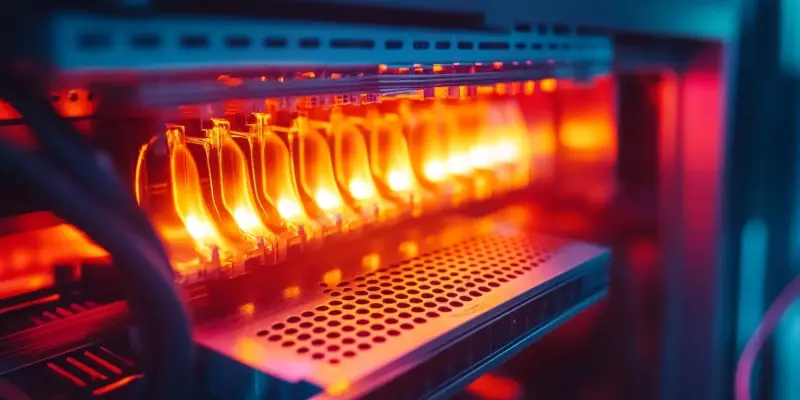Infomaniak, a data center in Geneva, Switzerland, has introduced a pioneering approach to energy use that converts all its consumed electricity into heat, drastically reducing environmental impact and heating thousands of homes. Traditionally, data centers face significant criticism for their extremely high energy consumption and carbon footprint. Since November 2024, the center’s innovative system has been efficiently recycling the heat produced by its operations to supply a heating network in the Canton of Geneva. Even operating at just 25% of its capacity, Infomaniak is already proving the viability of this green method, with plans to reach full capacity by 2028. Their remarkable efforts are not only setting a new standard in the cloud industry but also encouraging broader trends towards sustainable energy solutions.
Innovative Heat Recovery System
At the core of Infomaniak’s operation is its meticulous heat recovery system, designed to maximize the utility of every joule of energy consumed by the data center’s infrastructure. In practice, the electricity that powers the servers, inverters, and ventilation units generates significant heat, which is typically wasted. Infomaniak, however, captures this heat and funnels it through advanced heat pumps to elevate the temperature to efficient levels: 67°C in the summer and 85°C in the winter. When fully operational, this sophisticated system will contribute a substantial 1.7 megawatts to Geneva’s heating network annually. This contribution translates into considerable CO2 savings, estimated at 3,600 tonnes from reduced natural gas consumption and 5,500 tonnes from diminished pellet use each year.
Undoubtedly, this innovative heat recovery method aligns with the growing momentum toward sustainable energy practices. The absence of air conditioning in the center further highlights Infomaniak’s commitment to minimizing environmental impact. Moreover, the data center’s underground construction enhances its efficiency by naturally regulating temperatures, thereby reducing energy consumption further. By setting such a precedent, Infomaniak is not just advancing sustainability within their operations but also providing a scalable model that could inspire similar environmental initiatives across the cloud computing industry.
Leading the Way in Sustainable Energy
Infomaniak’s bold project extends well beyond just enhancing operational efficiency, serving as a shining example of energy conservation in an industry notorious for heavy energy consumption. Celebrated for its efficiency and commitment to sustainability, the data center encourages other organizations to adopt its pioneering methods. By offering a technical guide and actionable recommendations for policymakers, they promote transparency and enable the broader adoption of their model. As the demand for cloud services skyrockets, data centers will face increased pressure to implement eco-friendly practices.
This initiative highlights a crucial element of modern tech progress—the need to balance cutting-edge innovation with environmental stewardship. Infomaniak showcases how existing technology can be creatively repurposed to tackle urgent global issues like climate change. Their efforts highlight the importance of sustainability within technological advancement, potentially setting new industry standards. As both businesses and governments increasingly prioritize green solutions, Infomaniak’s model may serve as a blueprint for future data centers striving to merge operational efficiency with eco-friendly practices.

